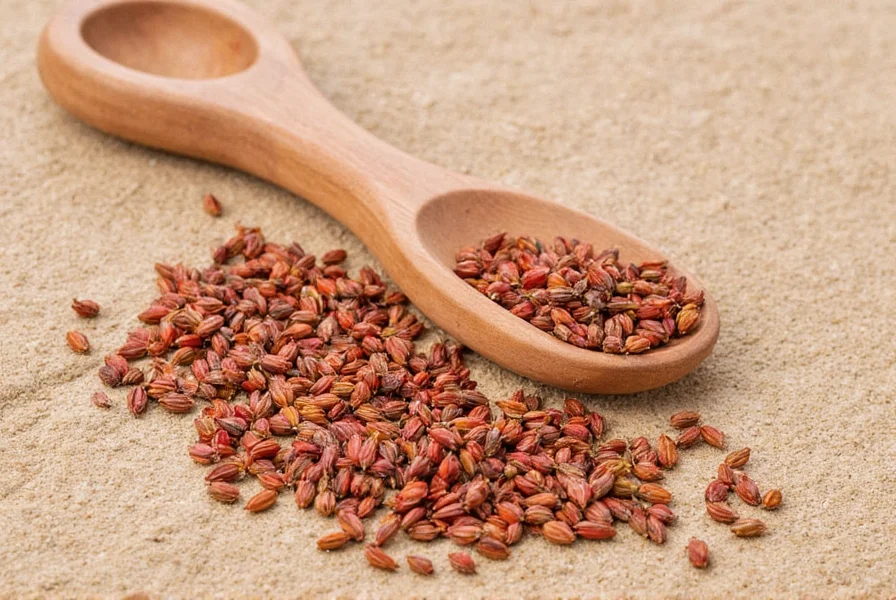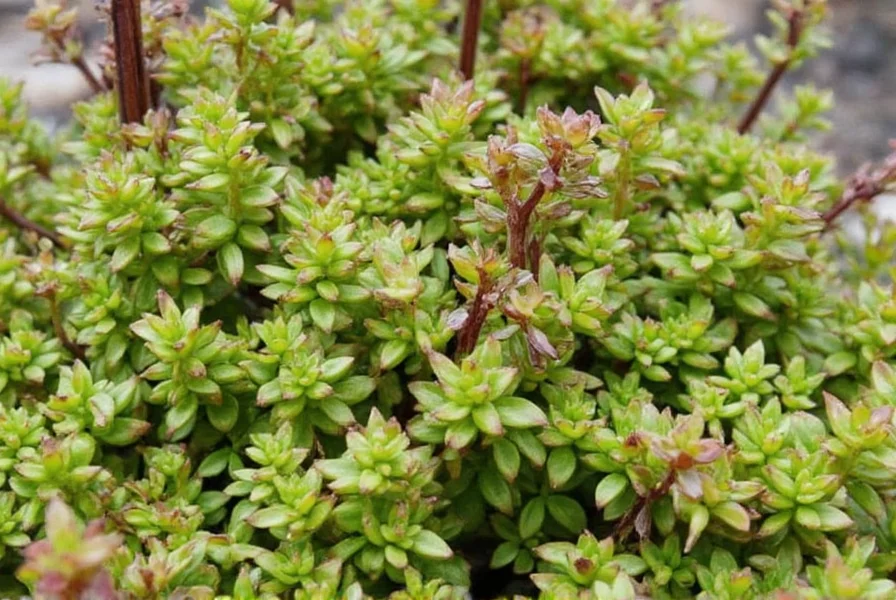Anise (Pimpinella anisum) offers scientifically supported health benefits including improved digestion, respiratory relief, hormonal balance support, and antimicrobial properties. Clinical studies confirm its effectiveness for digestive issues like bloating and colic, with compounds such as anethole demonstrating anti-inflammatory and antioxidant effects. However, proper dosage matters as excessive consumption may cause side effects, particularly for pregnant women or those with estrogen-sensitive conditions.
For centuries, anise seed has been valued across Mediterranean and Middle Eastern cultures not just as a culinary spice but as a medicinal herb. This small, aromatic seed from the Apiaceae family contains potent bioactive compounds that interact with multiple body systems. Modern research continues to validate many traditional uses while revealing new therapeutic potentials.
Understanding Anise: Botanical Profile and Active Components
Anise (Pimpinella anisum) is an annual plant native to the eastern Mediterranean and Southwest Asia. The fruit—commonly called aniseed—contains 2-6% essential oil, with anethole comprising 80-90% of this oil. This compound gives anise its distinctive licorice-like flavor and drives many of its medicinal properties of anise.
Other significant components include:
- Gamma-hexenol and gamma-hexenal (contributing to antimicrobial effects)
- Limonene (with antioxidant properties)
- Phenolic compounds (providing additional antioxidant benefits)
| Compound | Percentage in Essential Oil | Primary Health Effects |
|---|---|---|
| Anethole | 80-90% | Digestive aid, anti-inflammatory, estrogenic effects |
| Gamma-hexenol | 2-4% | Antimicrobial, antifungal |
| Limonene | 1-3% | Antioxidant, potential anticancer properties |
Evidence-Based Health Benefits of Anise Seed
Digestive Health Improvements
One of the most well-documented anise for digestion benefits involves gastrointestinal relief. A 2016 clinical trial published in Complementary Therapies in Medicine found that anise oil significantly reduced symptoms of functional dyspepsia compared to placebo. The carminative properties help expel gas, while its antispasmodic effects relax intestinal muscles.
Parents have traditionally used anise tea benefits for infant colic. Research in the Journal of Alternative and Complementary Medicine confirmed that anise-based herbal teas reduced crying time in colicky infants by approximately 50% compared to controls.

Respiratory System Support
The expectorant properties of anise make it valuable for respiratory conditions. When consumed as tea or inhaled as steam, anise compounds help loosen mucus and reduce cough frequency. A study in Phytotherapy Research demonstrated that anise extract had comparable efficacy to dextromethorphan for suppressing dry coughs.
Traditional Middle Eastern medicine has long used anise for asthma and bronchitis. Modern research suggests its anti-inflammatory effects may help reduce airway inflammation, though more human studies are needed.
Hormonal Balance and Menstrual Relief
Women seeking natural remedies often explore anise for menstrual cramps. Clinical research shows promise: a randomized controlled trial found that anise seed powder (3g daily) significantly reduced menstrual pain intensity compared to placebo. The phytoestrogenic compounds in anise may help regulate hormonal fluctuations.
Postmenopausal women may also benefit. Research in the Journal of Obstetrics and Gynaecology indicated that anise extract improved symptoms of menopause including hot flashes and sleep disturbances, though effects were more modest than hormone therapy.
Antimicrobial and Antioxidant Properties
Lab studies consistently demonstrate anise's broad-spectrum antimicrobial properties of anise. The essential oil shows inhibitory effects against bacteria including E. coli and Staphylococcus aureus, as well as fungi like Candida albicans. While promising, these findings primarily come from in vitro studies—human applications require further research.
The antioxidant capacity of anise, measured by ORAC (Oxygen Radical Absorbance Capacity), ranks higher than many common spices. These compounds help combat oxidative stress, potentially reducing long-term risk of chronic diseases.
Traditional Uses Across Cultures
Cultural applications of anise reveal consistent patterns that modern science is beginning to validate:
- Middle Eastern traditions: Used in postpartum recovery teas to support lactation
- Mediterranean practices: Incorporated into digestive liqueurs like Ouzo and Arak
- Ayurvedic medicine: Combined with other herbs for respiratory formulas
- European folk medicine: Employed as a sleep aid and anxiety reducer
Practical Applications: How to Use Anise for Health Benefits
To experience the scientific evidence for anise benefits, consider these evidence-based approaches:
Anise Tea Preparation
For digestive or respiratory support:
- Crush 1-2 teaspoons of whole anise seeds
- Steep in 8oz boiling water for 10 minutes
- Strain and drink 1-3 times daily, preferably after meals
Dosage Guidelines
Research-supported dosages vary by application:
- Digestive issues: 1.5-3g of seed powder daily
- Menstrual discomfort: 300-600mg anise extract three times daily
- Respiratory relief: 1-2 cups of strong anise tea daily
Never exceed 20g of anise seed daily, as higher amounts may cause adverse effects.
Potential Side Effects and Contraindications
While generally recognized as safe (GRAS) by the FDA, potential side effects of anise include:
- Allergic reactions (particularly in those sensitive to celery or carrots)
- Hormonal effects that may interfere with estrogen-sensitive conditions
- Skin irritation when applied topically in concentrated forms
Special precautions apply for:
- Pregnant women: Avoid medicinal doses due to potential uterine stimulation
- Individuals with estrogen receptor-positive cancers: Consult physician first
- People taking blood thinners: Anise may enhance anticoagulant effects
Anise vs. Star Anise: Understanding the Differences
Many confuse anise (Pimpinella anisum) with star anise (Illicium verum), though they're unrelated plants. True anise comes from a herbaceous plant, while star anise grows on trees. Both contain anethole, but star anise has higher shikimic acid content (used in Tamiflu production).
When seeking specific anise vs star anise benefits, note that traditional medicinal applications differ. True anise has more research supporting digestive applications, while star anise shows stronger antiviral properties. Never substitute Japanese star anise (Illicium anisatum), which is toxic.

Integrating Anise into a Holistic Health Approach
Anise works best as part of a comprehensive wellness strategy rather than a standalone solution. For digestive concerns, combine how to use anise for health with dietary modifications and stress management. Those using anise for hormonal balance should maintain regular medical checkups and discuss all herbal supplements with their healthcare provider.
Quality matters—choose organic, whole anise seeds when possible, as the essential oils degrade quickly in pre-ground forms. Store in an airtight container away from light to preserve potency.
Conclusion: Balanced Perspective on Anise Benefits
Anise offers multiple evidence-supported health advantages, particularly for digestive wellness, respiratory support, and hormonal balance. While not a miracle cure, its therapeutic potential makes it a valuable addition to natural health regimens when used appropriately. As research continues to evolve, we may discover additional applications for this ancient medicinal plant. Always consult healthcare professionals before using anise therapeutically, especially if managing chronic health conditions or taking medications.
Frequently Asked Questions About Anise Benefits
What's the most scientifically supported benefit of anise?
Digestive health represents the most scientifically validated benefit of anise. Multiple clinical studies confirm its effectiveness for reducing symptoms of indigestion, bloating, and infant colic. The carminative and antispasmodic properties of anethole—the primary compound in anise—directly address gastrointestinal discomfort through multiple physiological mechanisms.
Can anise help with menopause symptoms?
Research suggests anise may provide modest relief for certain menopause symptoms. A clinical trial published in the Journal of Obstetrics and Gynaecology found that anise extract reduced hot flash frequency and severity compared to placebo. The phytoestrogenic compounds in anise appear to interact with estrogen receptors, though effects are significantly milder than hormone replacement therapy. Women with estrogen-sensitive conditions should consult their physician before using anise medicinally.
How does anise compare to fennel for digestive issues?
Both anise and fennel offer digestive benefits through similar mechanisms, but research suggests anise may be more effective for acute symptoms like bloating and gas. A comparative study in Phytotherapy Research found anise demonstrated stronger antispasmodic effects on intestinal muscles. Fennel, however, shows slightly better evidence for long-term management of irritable bowel syndrome. Many traditional formulas combine both herbs for synergistic effects.
Is it safe to consume anise daily?
Culinary amounts of anise (up to 2g daily) are generally safe for most adults. However, medicinal doses (3-6g daily) should not be used continuously for more than 4-6 weeks without medical supervision. Long-term high-dose consumption may lead to hormonal imbalances or neurological effects due to the potent compounds in anise. People with specific health conditions should consult healthcare providers before regular medicinal use.
Can children safely consume anise for colic?
Anise-based herbal teas have been traditionally used for infant colic and show promise in clinical studies. However, the American Academy of Pediatrics cautions against giving herbal teas to infants under 6 months. For older infants, use only commercially prepared, pediatrician-approved formulations at recommended doses. Never give pure anise oil to children, as it can cause serious adverse reactions. Always consult a pediatrician before using anise for infant colic.











 浙公网安备
33010002000092号
浙公网安备
33010002000092号 浙B2-20120091-4
浙B2-20120091-4